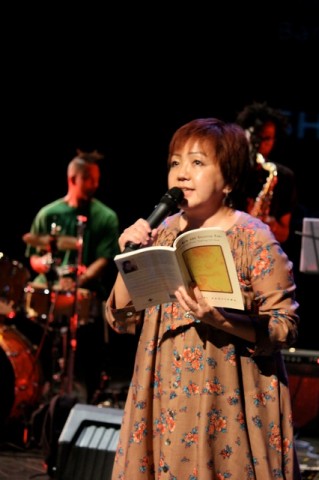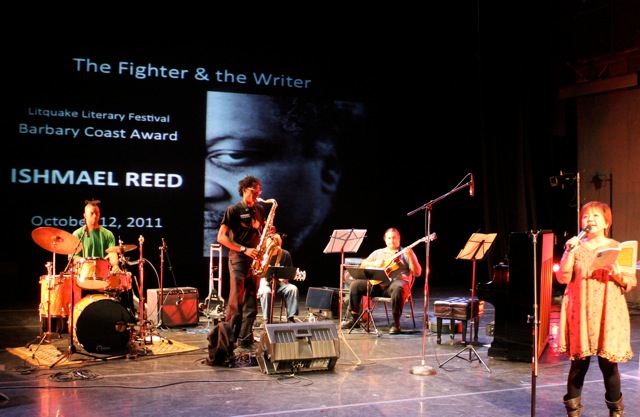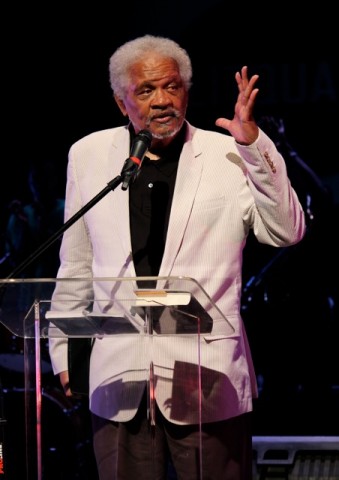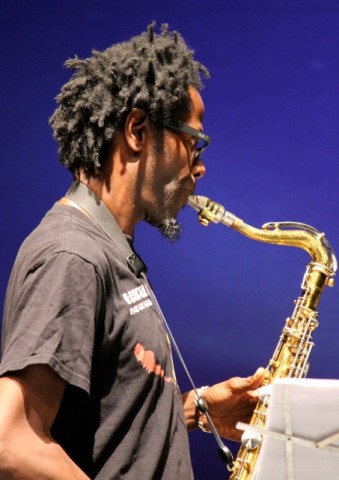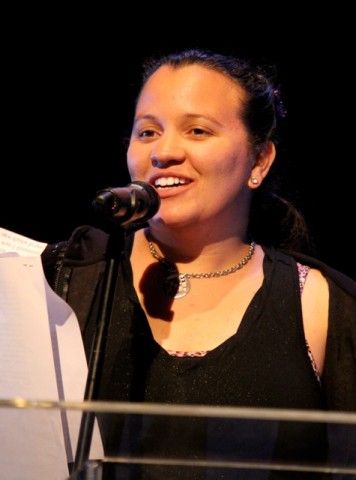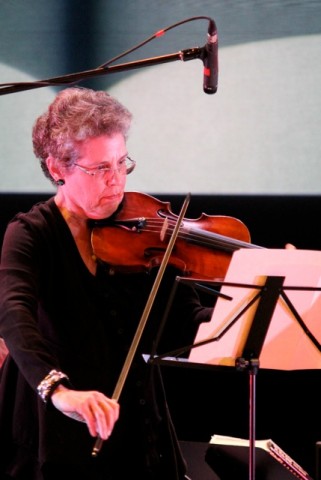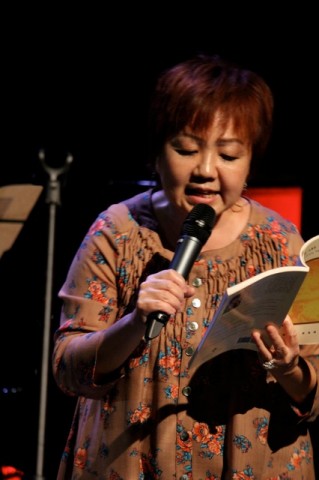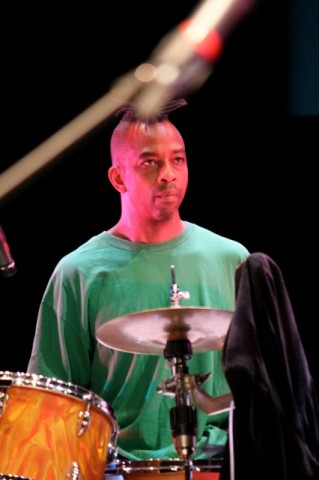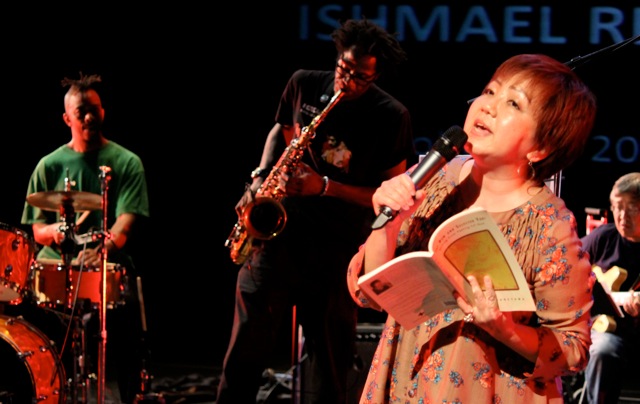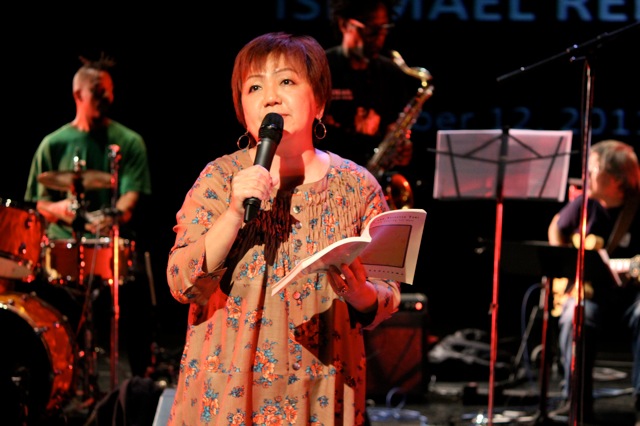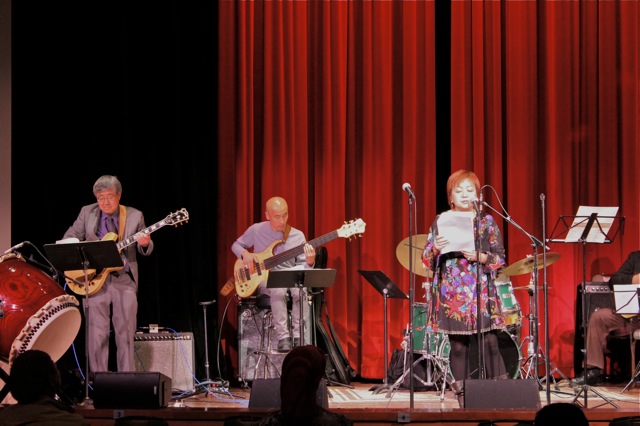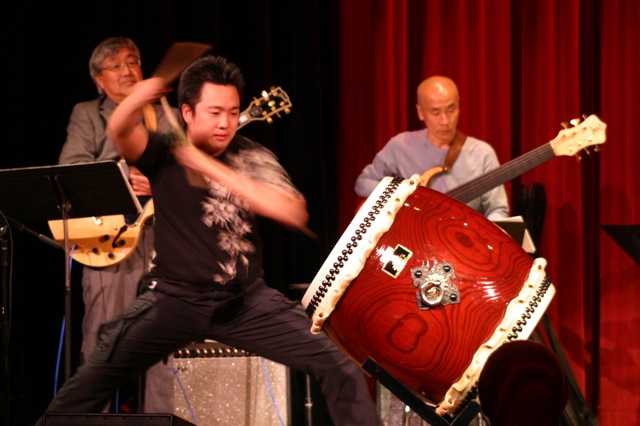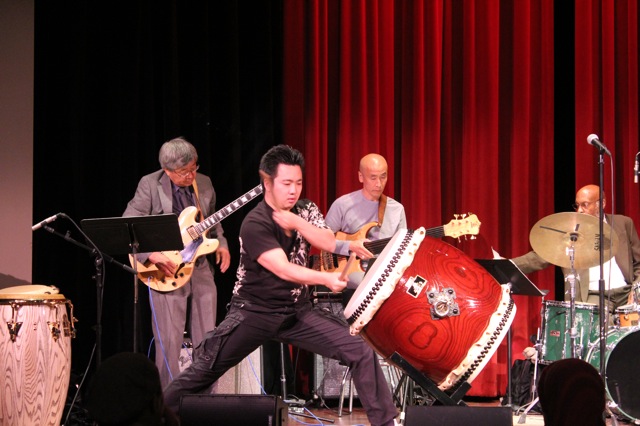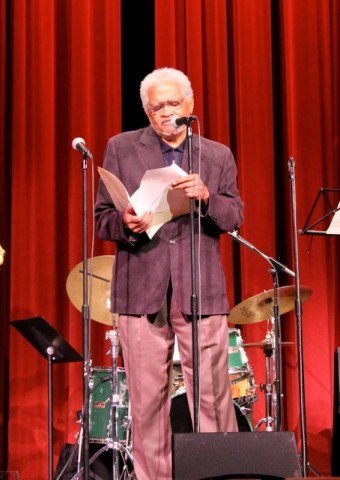Reading by Yuri Kageyama of “Little YELLOW Slut” with the Broun Fellinis at Z Space in San Francisco, where Ishmael Reed received the Barbary Coast Award Oct. 12, 2011. Video by Annette Borromeo Dorfman.
Little YELLOW Slut
Poetry by Yuri Kageyama
first published in KONCH MAGAZINE, 2009.
You know her:
That Little YELLOW Slut, proudly gleefully
YELLOW-ly hanging on Big Master’s arm,
War bride, geisha,
GI’s home away from home,
Whore for last samurai,
Hula dancer with seaweed hair,
Yoko Ohno,
Akihabara cafe maid,
Hi-Hi Puffy Ami/Yumi,
Kawaiiii like keitai,
Back-up dancer for Gwen Stefani,
Your real-life Second Life avatar
Eager to deliver your freakiest fetish fantasies,
Disco queen, skirt up the crotch,
Fish-net stockings, bow-legged, anorexic, raisin nipples, tip-toeing Roppongi on
Stiletto heels.
Yessu, i spikku ingrishhu, i raikku gaijeeen, they kiss you,
hold your hand, open doors for me,
open legs for you, giggling pidgin, covering mouth,
so happy to be
Little YELLOW Slut.
Everybody’s seen her:
That Little YELLOW Slut, waiting at
Home, cooking rice, the Japanese
Condoleezza Rice,
Smelling of sushi,
Breath and vagina,
Fish and vinegar,
Fermented rice,
Honored to be
Cleaning lady,
Flight attendant for Singapore Airlines,
Charlie Chan’s Angel,
Nurse maid, gardener, Japan-expert’s wife,
Mochi manga face,
Yodeling minyo, growling enka,
Sex toy, slant-eyes closed, licking, tasting, swallowing STD semen,
Every drop.
Yessu, i wanna baby who looohkuh gaijeen, double-fold eye, translucent skin, international school PTA,
maybe grow up to be fashion model, even joshi-ana,
not-not-not happy to be
Little YELLOW Slut.
I recognize her:
That Little YELLOW Slut, rejecting
Japanese, rejected by Japanese,
Ashamed,
Empty inside,
They all look alike,
Faceless, hoping to forget, escape
To America,
Slant-eyed clitoris,
Adopted orphan,
Dream come true for pedophiles,
Serving sake, pouring tea, spilling honey,
Naturalized citizen,
Buying Gucci,
Docile doll,
Rag-doll, Miss Universe, manic harakiri depressive, rape victim, she is
You, she is me.
Hai, hai, eigo wakarimasen, worship Big Master for mind, matter, muscle, money, body size correlates to penis size,
waiting to be sexually harassed, so sorry, so many,
so sad to be
Little YELLOW Slut.

